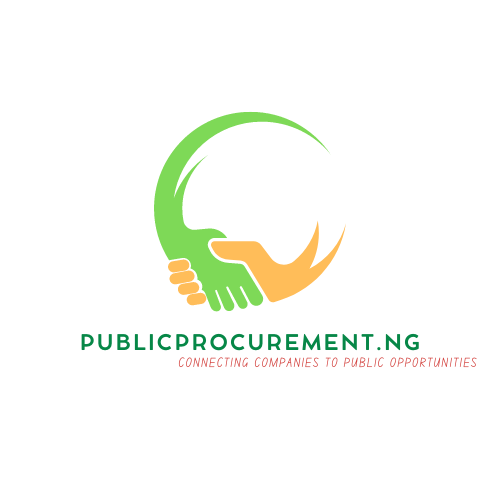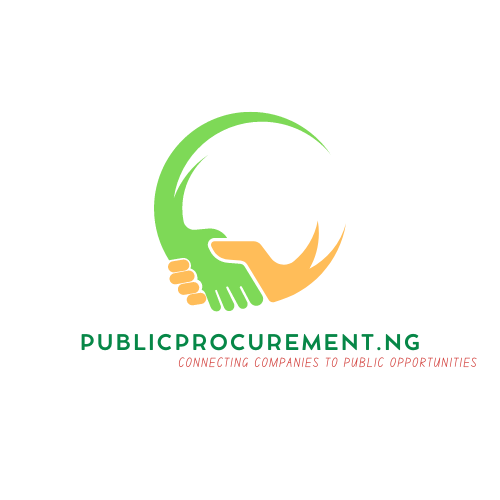LAGOS STATE MINISTRY OF JUSTICE
– INVITATION TO BID FOR INFRASTRUCTURAL DEVELOPMENT IN LAGOS COURT


– INVITATION TO BID FOR INFRASTRUCTURAL DEVELOPMENT IN LAGOS COURT

OXFAM NOVIB
CONSULTANCY FOR FISH VALUE CHAIN ANALYSIS
CLOSING DATE: 23 JULY, 2020
TERMS OF REFERENCE FOR FISH VALUE CHAIN ANALYSIS (VCA) IN TARABA STATE
A. INTRODUCTION
The produce and sell (PROSELL) project is a 54 months Food Security and Resilience project funded by the European Union (EU) managed by Oxfam in Nigeria and implemented in partnership with Development Exchange Centre (DEC) in 80 communities in six (6) benefiting LGAs namely: ZING, ARDO-KOLA, TAKUM, DONGA, WUKARI, KURMI. PROSELL project is aimed at building resilience of 40,000 small-scale farmers, fishermen and livestock owners (women, youth, and vulnerable households), increase income of small scale farmers by enhancing their agricultural productivity, market access, and job creation along crop, fish and livestock value chains, enhance adaptive capacities of small-scale farming households to climate change and promote cooperation and mutual benefits of farmers, livestock owners, and all value chain actors in Taraba State.
The Specific objectives are:
• To increase income of small scale farmers by enhancing their agricultural productivity, market access, and job creation along crop, fish and livestock value chains.
• To enhance adaptive capacities and resilience of small-scale farming households to climate change.
• To promote cooperation and mutual benefits of farmers, livestock owners, and all value chain actors.
Rationale:
Identifying issues that are critical for progress of agri-food chains including fisheries sub-sector and designing action plans to embark upon these issues is an important mission for chain actors and support institutions. Although this is a demanding task; development success depends on a large number of variables.
Value Chains describe the full range of activities which are required to bring a product or service from conception, through the different phases of production (involving a combination of physical transformation and the input of various producer services), delivery to final consumers, and final disposal after use [1].
Although Oxfam previously commissioned a study on market survey/rapid assessment of catfish/poultry value chain in Kebbi, Adamawa and Taraba states, the main objective of the study was to scale up the fish feed calculator App innovation which was piloted in Ibadan. Some of the limitations of the study include: a) the focus on a particular specie (i.e., catfish) and aquaculture system of production which may not be the predominant species and fish farming system, respectively in Taraba that plays critical roles in income generation among different actors; b) the findings of the study was limited to only one actor in the fish value chain, which is the input supply players (feed and fingerlings) thereby omitting other actors in fish value chain such as producers, processors, consumers and other supporting institutions (regulatory bodies, financial institutions, etc) who has important roles to play in the functioning and efficiency of fish business. These omissions are gaps that needs to be filled to give a direction to proper implementation of PROSELL’s fish component which seeks to support fish production entrepreneurs with access to inputs (both production and processing) and markets. It is against this backdrop that there is need to conduct a comprehensive study of all the fish value chain with the view to identifying existing market outlets, determine worthwhileness of fish business, analysing the strength, weakness, opportunities and threats (SWOT) of fish business, and constraints that militates against the efficiency of the entire value chain. The outcome of the study will enable the PROSELL project to identify ‘felt’ needs of the value chain actors and determine where programmatic interventions will focus to achieve significant impact on the livelihoods of the value chain actors particularly youth [2] and women [3].
Objective of the assignment
The underlying objective of the fisheries value chain analysis understand the socioeconomic characteristics of the key fisheries actors in the fisheries value chain identify opportunities for growth in the fisheries value chain in Taraba State. In doing so, emphasis should be on those opportunities that have the potential to generate significant additional livelihoods, particularly at the level of the fishing communities and for low-income groups. The study is expected to conduct an analysis of the upstream and downstream fisheries industry with reference to Taraba state. The results from the value chain analysis will be used to identify programmatic interventions to promote those livelihood outcomes for our target participants.
The primary fish product that the study is expected to focus for the study is both fresh and smoked fish (major species/product forms) destined for domestic markets. However, work will also be undertaken on frozen fish to find out more about the significance of these value chains.
Specific objectives:
• Describe the socio-economics characteristics of the fish value chain actors;
• Identify and describe the products and any distinct sub-groups that constitute the main focus for this study (fresh fish, smoked and frozen fish); where possible, provide an estimate of applicable product volumes in markets;
• Describe the predominant production practice especially by the smallholder fish producers to understand their capacity for sustainable fishery production practices;
• Describe the existing support systems/functions; and the rules, regulations, and norms governing the value chain in Taraba State;
• Geo-referenced identified fish production, processing centres and market locations across particularly in the LGAs of intervention (Ardo-kola, Donga, Kurmi, Takum, Wukari and Zing) in particular and Taraba state in general
• Map the chains and in so doing, identify the various actors, production size, gender composition, their functions and existing linkages in these fisheries value chains;
• Make a preliminary analysis of the input-output structure and the distribution of margins and return on investment along the chain;
• Make a preliminary assessment of the power relations in the value chain and how these affect the distribution of margins along the chain;
• Identify significant trends and changes influencing the fisheries value chains;
• From the perspective of fish value chain livelihoods, analyze the constraints and opportunities in the value chain (from the points of initial production to sale); and
• Make recommendations on interventions and partnerships that have the potential to address major production efficiency constraints towards that can lead to significant expansion of livelihood opportunities in the value chains.
B. METHODOLOGY:
The Consultant/firm will be expected to adopt the Porter’s value chain framework[4] for the study. The assessment should be conducted with key value chain players including input dealers (e.g., feed suppliers, other inputs for pond); producers (i.e., ponds and artisanal); traders (i.e., collectors, retailers, wholesalers); marketers (e.g., food vendors, supermarkets, consumers); and with special consideration given to influencing factors (e.g., policies, finance, climate).
The VCA must also provide reliable background information and analysis related to the current conditions and realities in the artisanal and aquaculture value chains and overall fish value chain situation in Taraba state, with a specific focus on high value market systems.
This exercise will necessitate a mixed methods design that utilizes both quantitative and qualitative data collection strategies for collecting value chain data. Oxfam expects that the Consultant will conduct focus groups with the following partners, stakeholders, and beneficiaries:
• Influencers: Department of fisheries, Ministry of Agriculture, development partners, financial institutions, fisheries associations/co-operatives, etc
• Production segment of value chain: Input providers (e.g., feed mills, feed distributors, hatcheries and nurseries), artisanal fishermen, aquaculture producers, fish processors and buyers
• Post Production segment: wholesalers, collectors, distributors
• Retail end of value chain buyers: poultry farmers, food vendors, supermarkets, consumers
INVITATION FOR BIDS (IFB)
FEDERAL GOVERNMENT OF NIGERIA
IFAD ASSISTED LIVELIHOOD IMPROVEMENT FAMILY ENTERPRISE IN
THE NIGER DELTA (LIFE-ND) PROJECT
NATIONAL PROJECT COORDINATING OFFICE (NPCO)
ISSUED DATE: 25TH JUNE, 2020
IFAD LOAN NO: 2000002120
PROCUREMENT OF OFFICE EQUIPMENT
IFB NO: LIFE-ND/NPCO/IFAD/003/2020
1. The Federal Government of Nigeria has received a loan from the International Fund for Agricultural Development (IFAD) towards the cost of Livelihood improvement Family Enterprises in the Niger Delta (LIFE-ND) Project. This project is aimed at enhancing income, job creation and food security through Agribusiness enterprise development in a sustainable manner for the Niger Delta region. LIFE-ND intends to apply part of the funding to payments under the contract for the procurement of Office Equipment.
Accordingly, the National Project Coordinating Office LIFE-ND invites reputable firms with proven competence and experiences to submit tenders for the execution of the following:
NATIONAL AGENCY FOR SCIENCE AND ENGINEERING INFRASTRUCTURE (NASENI)
(FEDERAL MINISTRY OF SCIENCE AND TECHNOLOGY)
IDU INDUSTRIAL AREA, P. M. B. 391, GARKI, ABUJA.
TEL: 09-7831365, EMAIL: procurementdepartment@naseni.org
INVITATION TO TENDER AND EXPRESSION OF INTEREST (EOI) FOR 2020 CAPITAL PROJECTS
1. INTRODUCTION
The National Agency for Science and Engineering Infrastructure (NASENI), an Agency of the Federal Ministry of Science and Technology wishes to bring to the notice of experienced and competent Companies/Consultants that the Agency would carry out the procurement of Works, Goods and Services to be funded from the 2020 Appropriation Act in compliance with the Public Procurement Act, 2007. The projects description and locations are as follows:
2. SCOPE OF WORKS/GOODS/SERVICES
A. NASENI HEADQUARTERS, ABUJA
| LOT | PROJECT DESCRIPTION |
| LOT A1 | Provision of Consultancy for Architectural Design, Bill of Quantity, Engineering and Scientific Services. |
| LOT A2 | Construction of 20 Bed Wards in Obstetrics and Gynaecology Centre in Oka |
| LOT A3 | Construction of ICT Centre in Kassa Kurgwi, Qua’an Pan LGA, Plateau State |
| LOT A4 | Construction of Technology Orientation Multipurpose Hall with Office in Dadin Kowa Town, Doguwa LGA Kano State |
| LOT A5 | Construction and Furnishing of Obstetrics Centre in Utah, Ondo North Senatorial District, Ondo State |
| LOT A6 | Construction and Furnishing of Obstetrics Centre in Supare, Ondo North Senatorial District, Ondo State |
B. SCIENTIFIC EQUIPMENT DEVELOPMENT INSTITUTE (SEDI) – ENUGU
| LOT | PROJECT DESCRIPTION |
| LOT B1 | Procurement of Laboratory Machine/ Equipment for Glass and Allied Workshops |
| LOT B2 | Construction of Science Laboratory in Akunu |
| LOT B3 | Procurement of Generator for Business Empowerment at UkpoDunukofia LGA |
| LOT B4 | Procurement of Material for Production of Science Kit |
| LOT B5 | Procurement of Training Material (Mechanical, Electrical, Wood and ICT) |
C. ENGINEERING MATERIALS DEVELOPMENT INSTITUTE (EMDI)-AKURE
You must be logged in to post a comment.
WhatsApp us
Join the Daily Tender Update WhatsApp Group



No Comments